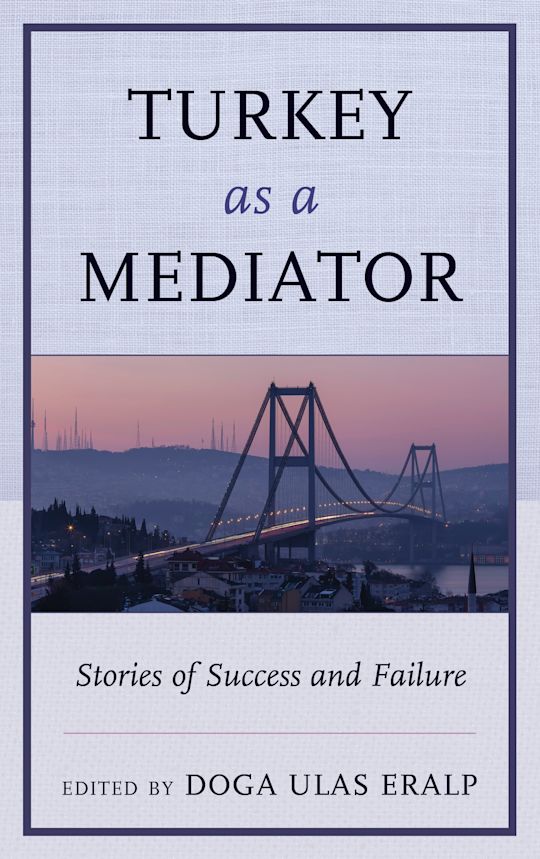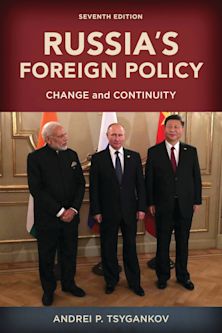- Home
- ACADEMIC
- Politics & International Relations
- Foreign Policy and Diplomacy
- Turkey as a Mediator
Turkey as a Mediator
Stories of Success and Failure
Doga Ulas Eralp (Anthology Editor) , Nimet Beriker (Contributor) , Arunjana Das (Contributor) , Doga Ulas Eralp (Contributor) , Sebnem Gumuscu (Contributor) , Ayse S. Kadayifci-Orellana (Contributor) , Havva Kok (Contributor) , Imdat Oner (Contributor) , Dennis J. D. Sandole (Contributor) , Anthony Wanis-St. John (Contributor)
Turkey as a Mediator
Stories of Success and Failure
Doga Ulas Eralp (Anthology Editor) , Nimet Beriker (Contributor) , Arunjana Das (Contributor) , Doga Ulas Eralp (Contributor) , Sebnem Gumuscu (Contributor) , Ayse S. Kadayifci-Orellana (Contributor) , Havva Kok (Contributor) , Imdat Oner (Contributor) , Dennis J. D. Sandole (Contributor) , Anthony Wanis-St. John (Contributor)
You must sign in to add this item to your wishlist. Please sign in or create an account
Description
This book provides an overview of successes and failures of Turkey’s mediation initiatives in different fragile and post-conflict societies. It is the first of its kind to run a systematic analysis of Turkey’s peacemaking. This edited collection treats its readers with a variety of analyses on the dominant narratives that guide Turkish mediation, the tools used by the Turkish government, and Turkey’s evolving self-image as a mediator since the mid-2000s. The book sheds a critical spotlight on the learning curve of the Turkish Foreign Policy as it initiated and supported peace processes between the western Balkan countries, in the Middle East, in post-civil war Somalia, and in the nuclear talks between Iran and P5+1. The book concludes with a summary of assets, challenges, and opportunities for Turkey’s sustained emergence as a mediator in international politics.
Table of Contents
Doga Ulas Eralp
2 US Grand Strategy and the Middle Power Policy: Turkey as a Mediator
Nimet Beriker
3 Turkey in the Western Balkans: A Comprehensive Approach for Peace
Doga Ulas Eralp
4 Turkey’s Peace Initiatives in the Middle East: A Tragic Turn of Events
Sebnem Gumuscu
5 Turkey’s Motives for Mediating the Iranian Nuclear Deal
Havva Kok and Imdat Oner
6 Turkey and Brazil’s Joint Mediation between Iran and the Western Powers: Process Matters
Arunjana Das and Anthony Wanis-St. John
7 Turkish Mediation in Somalia for Peace and Stability
Ayse Kadayifci-Orellana
8 Conclusion: Making Sense of it all, what is the Future of Turkish Mediation?
Doga Ulas Eralp
Product details
| Published | 15 Feb 2016 |
|---|---|
| Format | Ebook (PDF) |
| Edition | 1st |
| Extent | 158 |
| ISBN | 9798216304968 |
| Imprint | Lexington Books |
| Illustrations | 1 Chart, 13 Tables |
| Publisher | Bloomsbury Publishing |
About the contributors
Reviews
-
A much needed study that sheds light on Turkey’s attempts to become a mediator in a complicated world.
Soner Cagaptay, Washington Institute for Near East Policy



































